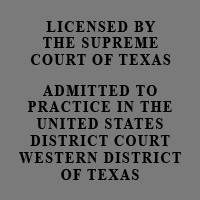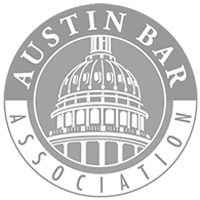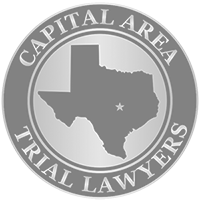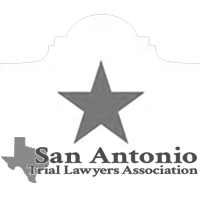Expose Hospital Kickbacks and Earn Financial Rewards: Medical Professionals Can Earn Large Financial Rewards for Exposing Illegal Hospital Kickbacks, Bribes, and other Forms of Medicare Fraud and Medicaid Fraud by Hospital Kickback Lawyer and Anti-Kickback Lawyer Jason Coomer
The Anti-Kickback Statute prohibits any person or business entity including hospitals from making or accepting payment to induce or reward any person for referring, recommending or arranging for the purchase of any item or service for which payment may be made under a federally-funded health care program. The statute prohibits kickbacks, bribes, inducements, rewards, and other economic incentives that induce physicians to refer patients for services or recommend purchase of medical supplies that will be reimbursable under government health care programs. Violations of the Anti-Kickback Statute can be the basis of Medicare and Medicaid Fraud Whistleblower Reward Lawsuit which offer large rewards to medical professionals who properly expose significant fraud.
If you are a healthcare professional who is aware of illegal kickbacks, bribes, inducements, rewards, or other economic incentives being paid by hospitals to physicians for significant referrals of Tricare, Veterans' Administration (VA), Medicaid, or Medicare patients and are interested in a confidential review of your a potential case, please feel free to contact Hospital Kickback Lawyer Lawyer Jason Coomer via e-mail message or our submission form about a potential upcoding, illegal kickback, bill padding, double billing, or billing fraud qui tam lawsuit.
The Anti-Kickback Statute "Safe Harbor" Provisions
Because the Anti-Kickback Statute was initially broad on its face, concerns arose among health care providers that some beneficial commercial arrangements were prohibited. Responding to these concerns, Congress authorized "safe harbors" for various payment and business practices that, while potentially prohibited by the law, would not be prosecuted.
The Antikickback Statute contains certain exceptions or "safe habors", which allow conduct that would otherwise violate the statute including allowing the Secretary of Department of Health and Human Service to promulgate regulations which identify practices which do not violate the Antikickback Statute. Some of these safe habors can be found at 42 C.F.R. � 1001.952.
The Anti-Kickback Statute and the Stark Statute
The Stark Statute is named after
California Rep. Pete Stark who authored this
legislation. The purpose of the law is to prohibit
physician self-referrals and prevents a physician from
referring patients for certain designated health
services to any entity with which the physician has a
financial interest.. The law applies to any physician
who provides care to Medicare or Medicaid and is not as
broad as the Anti-Kickback Statute.
The Anti-Kickback Statute and Stark Statutes are
separate statutes, but are also refer to one another,
sometimes making compliance with one contingent on
complying with the other. Both are intended to prevent
health care providers from making referrals for the
purpose of financial benefit to themselves instead of
for the patient's benefit.
For more information on the Stark Statute or Federal False Claim Lawsuits from violations of the Stark Statute, go to the following webpage on Stark Statute Violation False Claim Lawsuits.
Through the Federal False Claims Act The United States Has Recovered Over $50 Billion
Since 1986, the Civil Division of the Department of Justice, working with U.S. Attorneys across the country, has returned tens of billions of dollars to the federal Treasury through civil and criminal judgments and resolutions in affirmative cases. This amount includes more than $53.6 billion recovered by the Division and the U.S. Attorneys under the False Claims Act. Last year alone, the government recovered more than $4.7 billion under the Act—the seventh straight year that the Department has recovered more than $3 billion of taxpayer funds. Similarly, in each of the last seven fiscal years, the government’s health care fraud recoveries have equaled or exceeded $2 billion. In addition, in FY 2016, the government recovered more than $6.6 billion from banks and other financial institutions making false statements and claims.
Medicaid, Tricare, Veterans Administration, Hospice, and Medicare Whistleblowers that provide original source information of schemes to fraudulently take money from our United States government including illegal kickbacks, bribes, upcoding, double billing, bill padding, unbundling, and charging for services never provided may recover a portion of the proceeds recovered on the government's behalf. Below is an excerpt from the False Claims Act explaining what types of awards qui tam whistleblowers may recover for being the "original source" of information that is used to successfully expose fraud against Medicaid, Tricare, Veterans Administration, Hospice, Medicare, or another subdivision of the United States Government and recover money from the parties committing the fraud.
(d) AWARD TO QUI TAM PLAINTIFF
(1) If the Government proceeds with an action brought by a person under subsection (b), such person shall, subject to the second sentence of this paragraph, receive at least 15 percent but not more than 25 percent of the proceeds of the action or settlement of the claim, depending upon the extent to which the person substantially contributed to the prosecution of the action. Where the action is one which the court finds to be based primarily on disclosures of specific information (other than information provided by the person bringing the action) relating to allegations or transactions in a criminal, civil, or administrative hearing, in a congressional, administrative, or Government [General] Accounting Office report, hearing, audit, or investigation, or from the news media, the court may award such sums as it considers appropriate, but in no case more than 10 percent of the proceeds, taking into account the significance of the information and the role of the person bringing the action in advancing the case to litigation. Any payment to a person under the first or second sentence of this paragraph shall be made from the proceeds. Any such person shall also receive an amount for reasonable expenses which the court finds to have been necessarily incurred, plus reasonable attorneys’ fees and costs. All such expenses, fees, and costs shall be awarded against the defendant.
(2) If the Government does not proceed with an action under this section, the person bringing the action or settling the claim shall receive an amount which the court decides is reasonable for collecting the civil penalty and damages. The amount shall be not less than 25 percent and not more than 30 percent of the proceeds of the action or settlement and shall be paid out of such proceeds. Such person shall also receive an amount for reasonable expenses which the court finds to have been necessarily incurred, plus reasonable attorneys’ fees and costs. All such expenses, fees, and costs shall be awarded against the defendant.
Since amendments were made to the Federal False Claims Act in 1986, citizens that have filed suits on behalf of the federal government against government contractors that have participated in defrauding the government have regained over $12 Billion for taxpayers as well as have collected over $1 Billion in qui tam whistleblower awards.
Medicare and Healthcare Fraud Law Suits (Qui Tam Claims)
HEALTH CARE FRAUD CASE NETS RECOVERY OF $1.7 BILLION
HCA Inc. (formerly known as Columbia/HCA and HCA - The Healthcare Company) and HCA subsidiaries agreed to pay the United States over $1.7 Billion including $631 million in 2003 for civil penalties and damages arising from false claims the government alleged it submitted to Medicare and other federal health programs. In 2000, HCA subsidiaries pled guilty to substantial criminal conduct and paid more than $840 million in criminal fines, civil restitution and penalties. HCA will pay an additional $250 million to resolve overpayment claims arising from certain of its cost reporting practices. In total, the government will have recovered $1.7 billion from HCA.
This Qui Tam settlement resolved fraud allegations against HCA and HCA hospitals in nine False Claims Act qui tam or whistleblower lawsuits pending in federal court in the District of Columbia. Under the federal False Claims Act, private individuals may file suit on behalf of the United States and, if the case is successful, may recover a share of the proceeds for their efforts. Under the HCA settlement, the whistleblowers will receive a combined share of $151,591,500.00.
http://www.usdoj.gov/opa/pr/2003/June/03_civ_386.htm
Whistleblower Protection Under the Federal False Claims Act
The Federal False Claims Act has strong whistleblower protection provisions that protect Qui Tam False Claims Act whistleblowers from retaliatory actions by violators of the Federal False Claims Act.
Under Section 3730(h) of the False Claims Act, "[a]ny employee who is discharged, demoted, suspended, threatened, harassed, or in any other manner discriminated against in the terms and conditions of employment by his or her employer because of lawful acts done by the employee on behalf of the employee or others in furtherance of an action under this section, including investigation for, initiation of, testimony for, or assistance in an action filed or to be filed under this section, shall be entitled to all relief necessary to make the employee whole. Such relief shall include reinstatement with the same seniority status such employee would have had but for the discrimination, 2 times the amount of back pay, interest on the back pay, and compensation for any special damages sustained as a result of the discrimination, including litigation costs and reasonable attorneys' fees. An employee may bring an action in the appropriate district court of the United States for the relief provided in this subsection."
For more information on Whistleblower Protection Under the Federal False Claims Act or other Federal Whistleblower Protections, please go to the following Whistleblower Protection Webpage.
Government Contractor Fraud Qui Tam Whistleblower Lawsuit Information (False Claims Act Whistleblower Qui Tam Action Information)
For more information on Medicare Fraud, Tricare Fraud, Medicaid Fraud, Defense Contractor Fraud, Off Label Fraud, Road Construction Fraud, and other types of False Claims Act Whistleblower Claims, please go to the Qui Tam, Whistleblower, and Federal Federal False Claims Act Information Center.
Tricare, Veterans' Administration, Medicaid, and Medicare Fraud Lawyers and Kickback Law Suits
If you are aware of a large health care company or individual that is defrauding the United States Government, Tricare, Medicare, Veterans' Administration (VA), or Medicare out of millions or billions of dollars, contact Medicare, VA, Tricare Fraud Whistleblower Lawyer Jason Coomer via e-mail message Jason Coomer. As a Veterans' Administration, Tricare, Medicaid, Hospice, and Medicare Fraud Whistleblower Lawyer, he works with other powerful qui tam lawyers that handle large Health Care Government Fraud cases. He works with San Antonio Veterans' Administration Fraud Whistleblower Lawyers, Dallas Medicare Fraud Lawyers, Houston Medicare Upcoding Fraud Lawyers, and other Texas Health Care Kickback Fraud Lawyers as well as with other Medicare and Health Care Fraud Lawyers throughout the nation to blow the whistle on fraud that hurts the United States.
Feel Free to Contact Us with any Questions
Associations




